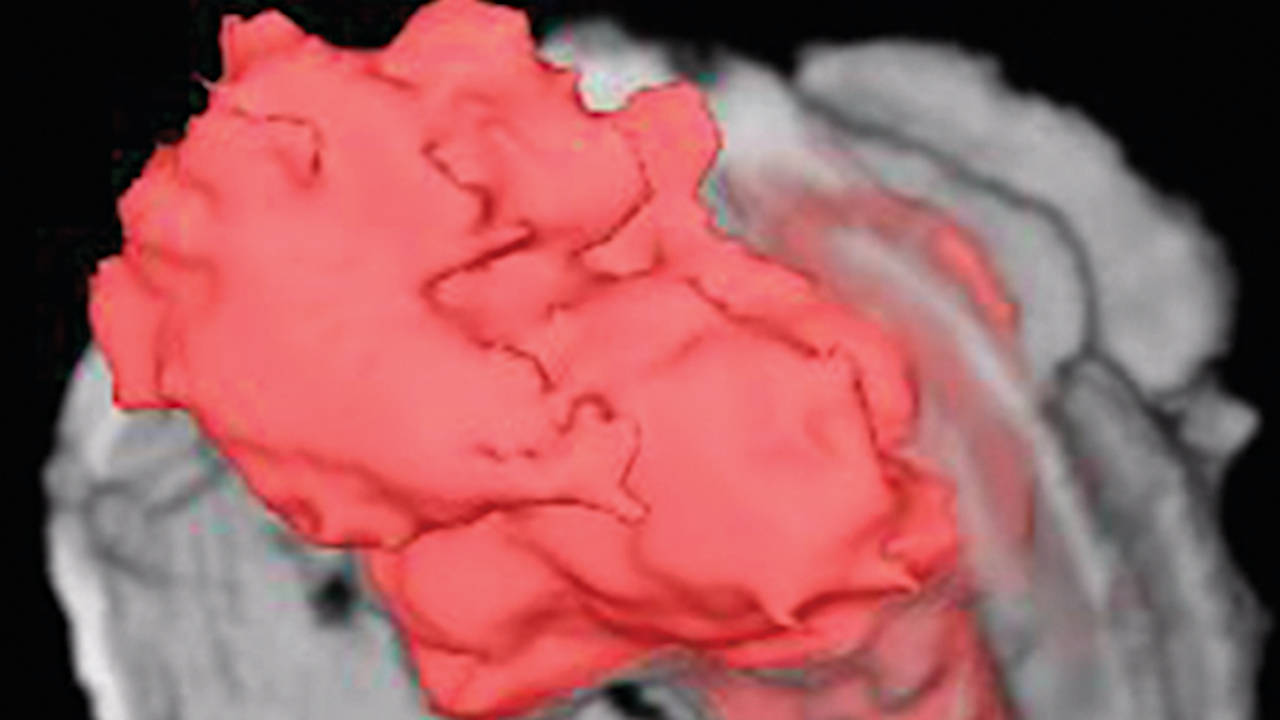
A novel technology that delivers anti-cancer drugs via nanoparticles to tumors – and helps physicians monitor them in real time — has won a University of Iowa spin-out a $2 million Phase II Small Business Innovation Research (SBIR) grant from the National Cancer Institute to help the company find a partner in the pharmaceutical world. […]
Already a subscriber? Log in
Want to Read More?
Get immediate, unlimited access to all subscriber content and much more.
Learn more in our subscriber FAQ.
- Unparalleled business coverage of the Iowa City / Cedar Rapids corridor.
- Immediate access to subscriber-only content on our website.
- 26 issues per year delivered digitally, in print or both.
- Support locally owned and operated journalism.
Do you want to read and share this article without a paywall?
Click here to purchase a paywall bypass linkA novel technology that delivers anti-cancer drugs via nanoparticles to tumors – and helps physicians monitor them in real time — has won a University of Iowa spin-out a $2 million Phase II Small Business Innovation Research (SBIR) grant from the National Cancer Institute to help the company find a partner in the pharmaceutical world.
NanoMedTrix, founded by Jose Assouline, an adjunct associate professor in the Roy J. Carver Department of Biomedical Engineering and the Roy J. and Lucille A. Carver College of Medicine,
won the two-year grant last month. SBIR Phase II grants are designed to move promising technology beyond the theoretical phase and into commercialization, supporting research that can be developed into products available to the public and industry.
NanoMedTrix’s nanoparticle technology highlights cancerous areas via MRI for direct delivery, using a contrast agent to light up computational imagery. But its main value is enabling cancer-killing drugs to directly target tumor cells via particles 10,000 times smaller than a human hair.
That means physicians can both monitor and treat cancer and other ailments on a micro level versus traditional cancer therapies that involve surgery, radiation, and chemotherapy, risking damage to normal tissues or incomplete eradication.
“It’s targeted drug delivery, which means that it’s actually going into destroying just the tumor, and not the normal tissue,” said Dr. Assouline, who has so far focused his studies on bladder cancer in mice, although the technology has many other possible applications. “And that’s very important. To give you an example … if you were to put that drug in the bladder [via traditional means], 97% of it is going to be eliminated within an hour.”
Unlike most drug therapy, nanoparticles deliver drugs directly into the tumor faster and remain in the body longer. And NanoMedTrix has recently been able to put its technology into a pill form, reducing patient pain and making the technology more practical to use.
“That means that we can tackle the tumor, before it progresses, [and eventually becomes] metastatic and invades all the organs in there, and it’s basically a battle, there’s nothing you can do,” he said. “And it’s pretty quick .. We can take MRIs without really touching the patient, over time seeing that the tumor is decreasing, and [that] we are effective in delivering the drug.”
It’s been a multi-year quest for Dr. Assouline, a former National Institute of Health researcher, who founded his company, headquartered at Coralville’s BioVentures, in 2012 as a commercial entity to deploy nanoparticles to the biomedical community.
Some of that time was dedicated to finding the proper “shell” to deliver pharmaceuticals effectively.
“It was trying to find something that would be inert, that would not cause diseases,” he said. “And then eventually I did find a molecule that can actually do that and it’s porous, so I can put things in that we synthesize in our labs.”
NanoMedTrix cancer fighting molecules are a therapeutic tool as well as a way of visualizing what is going on in a human or animal’s body.
“We focused on cancer in the bladder because the bladder is a bit more accessible than the brain – not that it’s easy but it’s a bit easier,” said Dr Assouline. “And so, about 10 years ago, I chose that as a prototype, and now we can target the tumor, because we put a little ‘hooks’ on the top of that shell, and it goes preferentially to the tumor as opposed to normal cells in the bladder.”
Dr. Assouline said NanoMedTrix technology has a wide range of applications for other cancers, including colorectal and neural tumors, as well as skin cancers, in which the technology could be administered via a patch.
“The idea is that we would basically partner with Big Pharma, eventually, and we would use their drugs,” Dr. Assouline said. “It could be any drugs, really. We also work with inflammation.
We also work with pain. We can deliver anything, but the technology is the same … The idea is also we need partners – we need commercial partners to help us.”
Dr. Assouline said NanoMedTrix remains in what is known as preclinical trials. Part of the SBIR grant will enable working with dogs as well as mice through Iowa State University’s veterinary school to prepare for human trials and eventual U.S. Food and Drug Administration approval.
“As part of this grant, we also do what is called ‘scale up,’ so we go from couple of grams to a kilogram of the material, and a kilogram of nanoparticles is a lot of fun,” he said. “And then we also work with the University of Iowa, which has a compounding pharmacy that will prepare products for injections, so the end of this phase we would have done additional species trials, and we will also have prepared for FDA approval.”